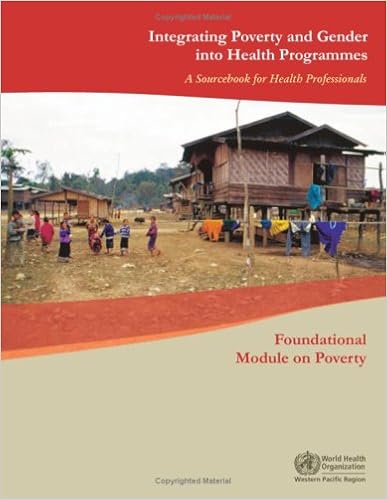
By Andrew J. Polsky
ISBN-10: 0691078785
ISBN-13: 9780691078786
ISBN-10: 1400813018
ISBN-13: 9781400813018
Assuming that "marginal" electorate can't govern their very own lives, proponents of the healing nation urge casework intervention to reshape the attitudes and behaviors of these who stay outdoor the social mainstream. hence the sufferers of poverty, delinquency, family members violence, and different difficulties are to be "normalized." yet "normalize," to Andrew Polsky, is a time period that "jars the ear, besides it's going to after we ponder what this attempt is all about." right here he investigates the vast community of public businesses that undertake the casework approach.
Read or Download The Rise of the Therapeutic State (The City in the Twenty-First Century Book Series) PDF
Best poverty books
Malaria continues to be an international public illness. within the Western Pacific zone, malaria is endemic in 10 international locations. The occurrence price within the area levels from 161. 7 in keeping with a thousand humans in Solomon Islands to zero. 04 within the Republic of Korea. The innovations hired to avoid and regulate malaria were potent in lowering the load of affliction in international locations within the area.
Sharon Hays's Flat Broke with Children: Women in the Age of Welfare Reform PDF
Hailed as a good good fortune, welfare reform led to a dramatic decline within the welfare rolls--from four. four million households in 1996 to two. 1 million in 2001. yet what does this "success" appear like to the welfare moms and welfare caseworkers who skilled it? In Flat Broke, With kids, Sharon Hays tells us the tale of welfare reform from contained in the welfare workplace and contained in the lives of welfare moms, describing the demanding situations that welfare recipients face in handling their paintings, their households, and the principles and laws of welfare reform.
Within the usa, the factors or even the meanings of poverty are disconnected from the motives and meanings of world poverty. The Routledge guide of Poverty within the usa offers an authoritative evaluate of the connection of poverty with the increase of neoliberal capitalism within the context of globalization.
Download PDF by A. S. Bhalla, Peter McCormick (auth.): Poverty Among Immigrant Children in Europe
Could be shipped from US. fresh replica.
- On the Parish?: The Micro-Politics of Poor Relief in Rural England c. 1550-1750 (Oxford Studies in Social History)
- Make a Difference: A Spectacular Breakthrough in the Fight Against Poverty
- Ask Me Why I Hurt: The Kids Nobody Wants and the Doctor Who Heals Them
- Poverty and sustainable development in Asia : impacts and responses to the global economic crisis
Extra info for The Rise of the Therapeutic State (The City in the Twenty-First Century Book Series)
Sample text
The central state apparatus came to be viewed as the only public structure that might embody the public interest in the philanthropic agenda. We can now grasp the unifying themes in philanthropy’s attempts to make over state power. Preservation of the working-class family, especially its moral integrity in bourgeois terms, became the standard by which to judge the appropriateness of public intervention. The state emerged with a new combination of duties and limits. Where the threat to the family could only be neutralized by authoritative action, philanthropy sought state support, even at the risk of conflict with agency clients or those required to bear the financial cost.
Unlike some of the other philanthropic contributions to the refashioning of public authority, this one was the subject of much discussion. To charity leaders and political reformers, the state had moved at a critical moment to reaffirm its limited mandate under the liberal social constitution. Institutional reform, the final component of the philanthropic enterprise, advanced another kind of change in the shape of state power. This involved a shift in the locus at which power would be exercised. Asylum advocates had always been mistrustful of local politics.
Many SPCCs, by contrast, did not shy from confrontation; they were willing, even eager, to prosecute parents as a means to refashion family norms. In fact, the New York chapter in 1881 gained the power to make arrests, while other SPCCs routinely called upon the police. Statutes permitted the Societies to be appointed as guardian in neglect cases and to be given immediate custody of very young children. Courts looked to SPCC agents for recommendations and usually followed their advice, which often was to separate a child from his or her family.
The Rise of the Therapeutic State (The City in the Twenty-First Century Book Series) by Andrew J. Polsky
by Michael
4.1



